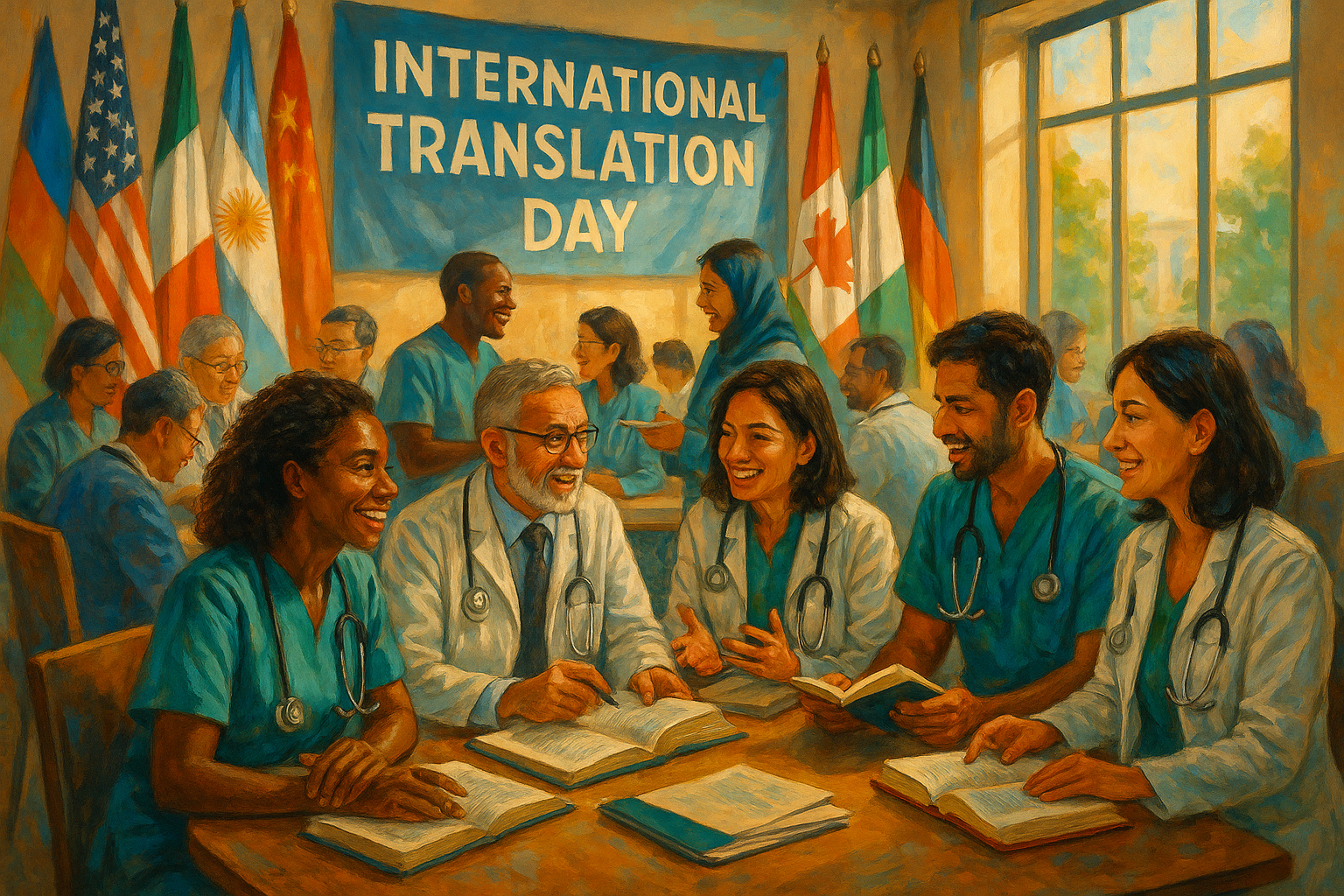International Translation Day: Honoring the Language of Global Healthcare
Medical Pharmaceutical Translations • Oct 6, 2025 12:00:00 PM

Every year on September 30, the world celebrates International Translation Day, a date established by the United Nations to honor the work of translators and interpreters across every field. For those of us in medical and pharmaceutical translation, this day carries special meaning. It reminds us that language is not just a tool for communication—it’s a bridge that connects patients, researchers, and healthcare professionals worldwide.
Why Translation Matters in Medicine
Medicine relies on precision. A single mistranslated dosage, contraindication, or clinical trial instruction can have serious consequences. Translators working in the medical field ensure that information remains accurate, consistent, and accessible across languages and cultures.
Their work supports:
-
Patient safety, by guaranteeing clear and accurate information.
-
Regulatory compliance, through consistent terminology and adherence to standards.
-
Global research collaboration, by making scientific findings available to diverse audiences.
In short, medical translators are a crucial part of the healthcare ecosystem—often invisible, but always essential.
The Evolution of Medical Translation
From handwritten Latin treatises to AI-assisted translation systems, the evolution of medical translation mirrors the growth of global healthcare itself. Today’s translators combine linguistic expertise with scientific literacy and advanced technology—including CAT tools, terminology management systems, and machine translation engines—to ensure the highest level of quality and efficiency.
However, even with these innovations, the human element remains irreplaceable. Medical translators interpret context, nuance, and cultural sensitivity in ways that no algorithm can replicate.
Celebrating Translators and Interpreters in Healthcare
On International Translation Day, we celebrate not only the translators who bring scientific research to new audiences but also the medical interpreters who bridge communication between doctors and patients in real time.
Both roles share the same mission: to make healthcare equitable, accessible, and safe for everyone—no matter their language.
Looking Ahead: The Future of Medical Translation
As medicine becomes increasingly global and personalized, the demand for accurate, secure, and ethically responsible translation will continue to grow. Artificial intelligence and automation will assist, but it’s the expertise and judgment of professional translators that ensure every patient receives the same standard of care—no matter where they live or what language they speak.
Final Thoughts
International Translation Day is a moment to reflect on the power of language to heal, connect, and empower. For those working in life sciences and healthcare, it’s also a call to continue strengthening the partnerships between translators, interpreters, and healthcare professionals that make global medicine possible.
Behind every successful healthcare communication, there’s a skilled translator ensuring that knowledge truly crosses borders.
